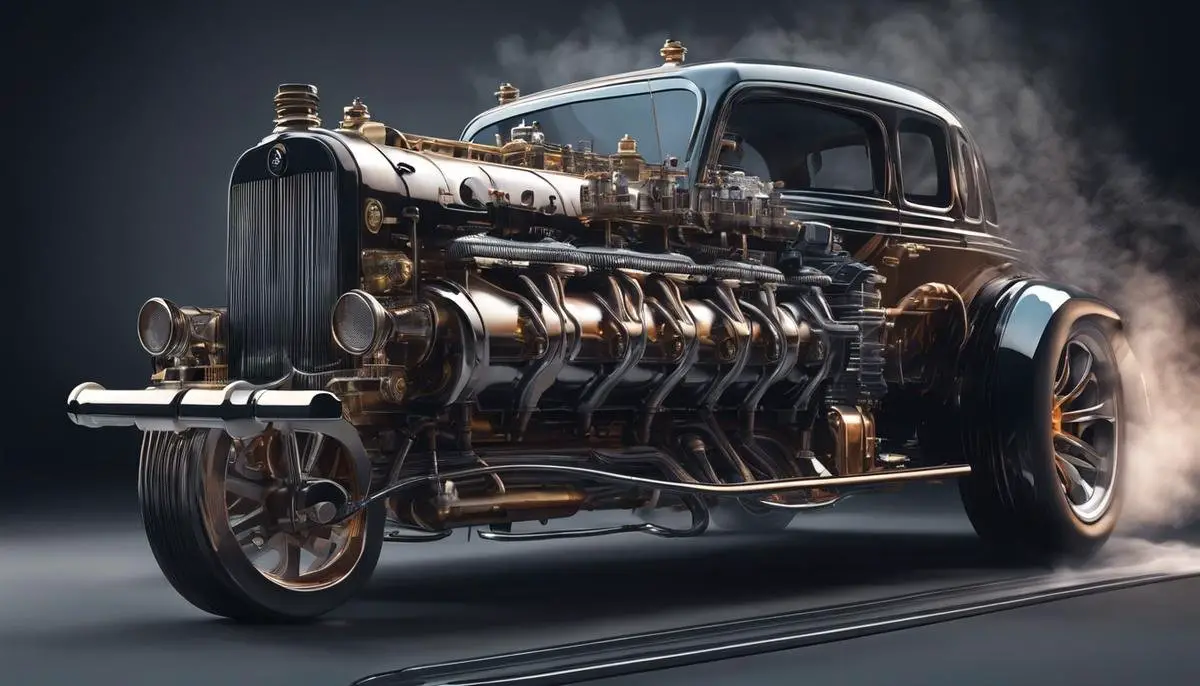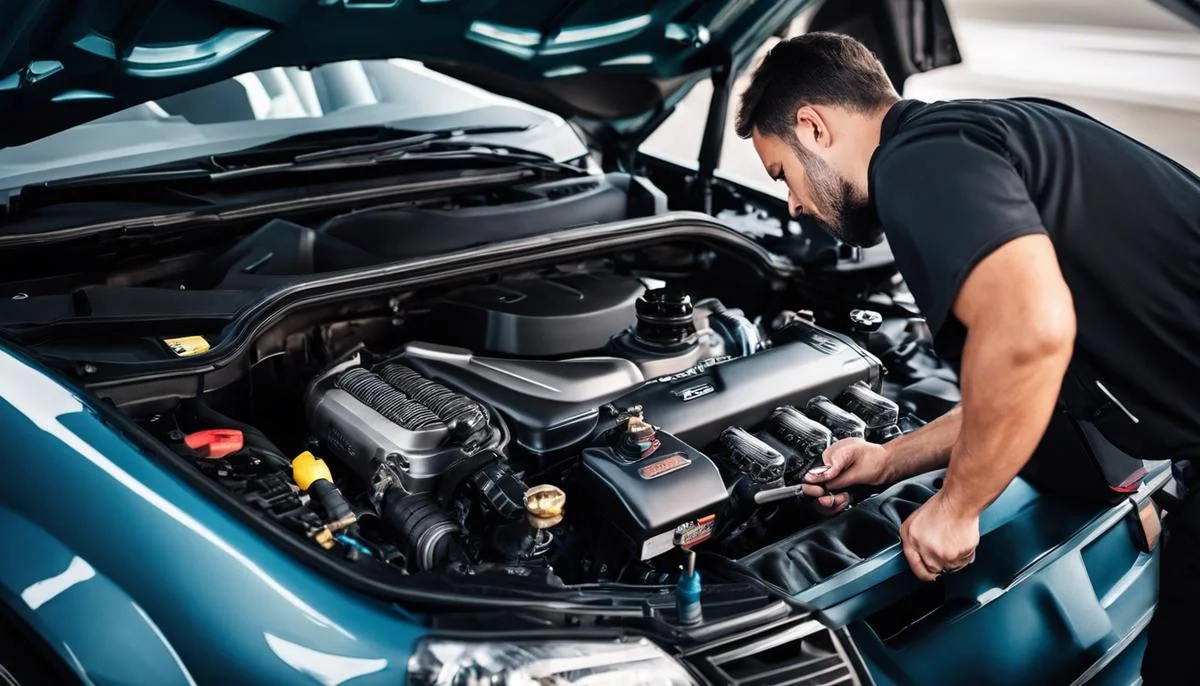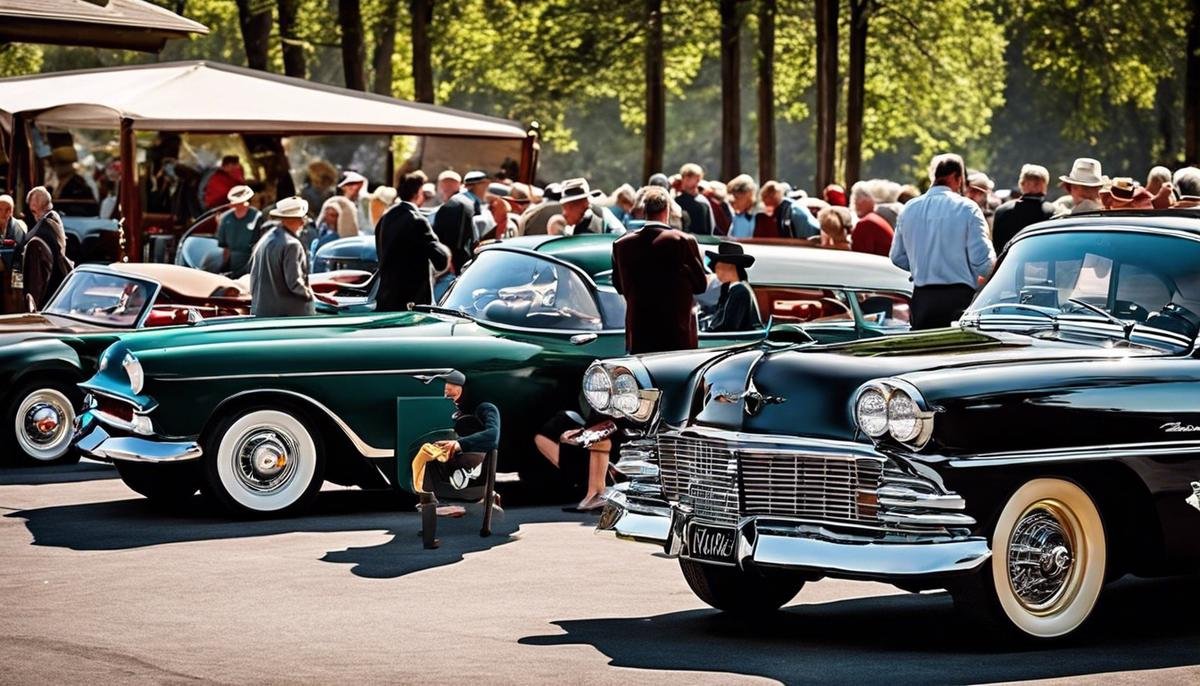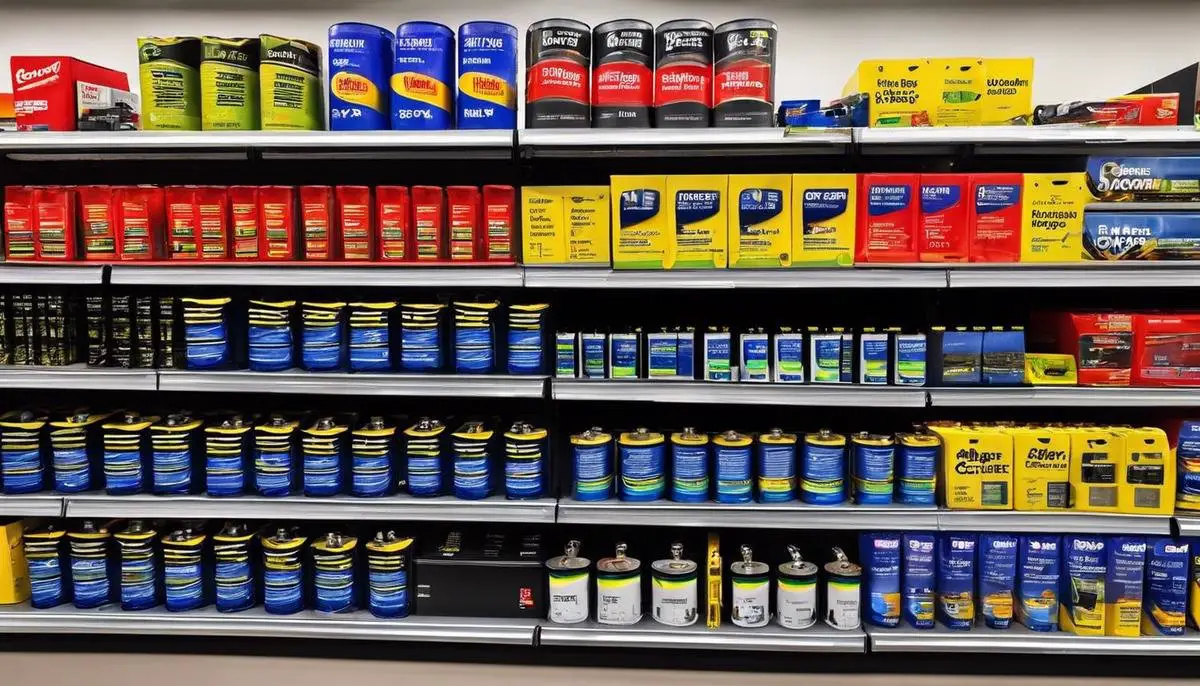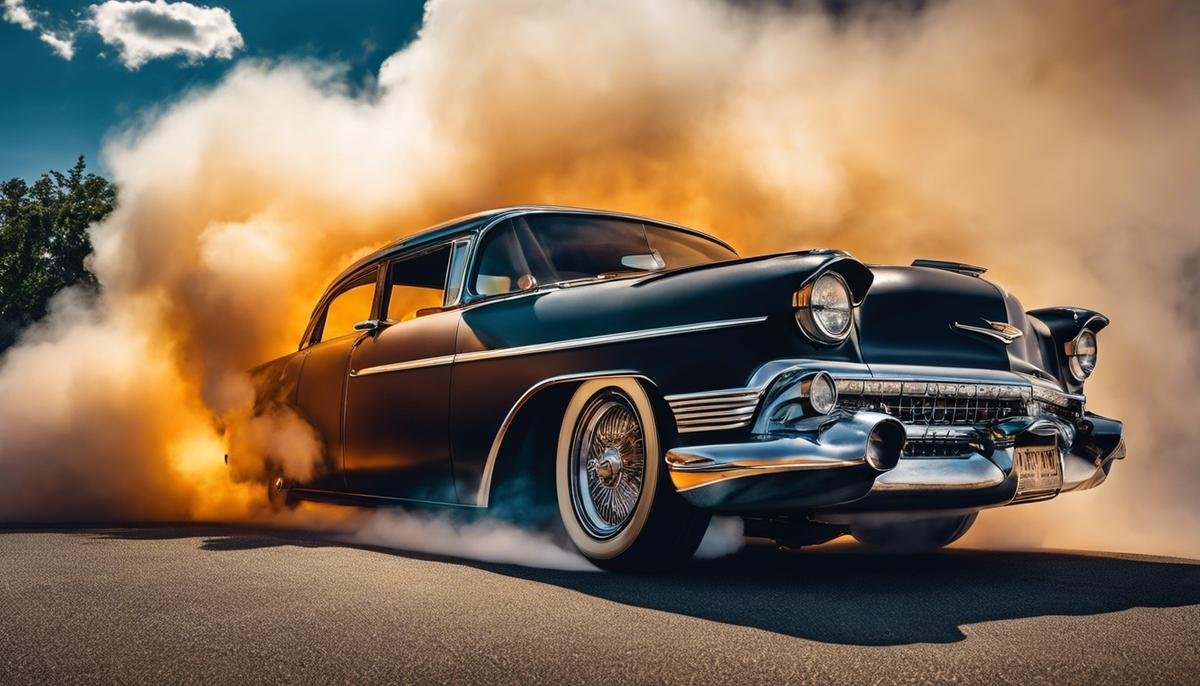
Imagine driving on a hot summer day, enjoying your favorite music, when suddenly your car starts to show signs of distress. The temperature gauge is shooting up, there's steam oozing out from under the hood, and the engine starts to stutter. These are all signs of an overheating car, an unfortunately common problem, particularly when the vehicle is idling. It's important to understand the causes and recognize the signs of an overheating car to prevent major mechanical damage or even an accident. This often involves a thorough comprehension of the vehicle's intricate cooling system and an awareness of timely maintenance protocols.
Understanding Car Overheating Causes
Decoding the Overheat Mystery: Why Cars Overheat While Idling
When you're behind the wheel, a calm drive can suddenly turn into a stress-inducing adventure if you notice the temperature gauge skyrockets when your car is idling. It's a common, yet often misunderstood, phenomenon that strikes terror in the heart of many drivers. Puzzling, isn't it? But not to worry, fellow auto enthusiasts! It's time to take off the mechanic cap and delve into what’s really going on under the hood when your car overheats while at idle.
The main culprit behind an overheating engine is compromised cooling. The car’s cooling system, an intricate maze composed of the radiator, coolant, thermostat, and water pump, may not be operating as efficiently as it should. When idling, the system is put to the test, as it needs to be able to cool the engine without the added benefit of increased airflow that comes from driving at higher speeds.
Digging deeper, the car's radiator plays a cardinal role in keeping the engine from overheating. It does this by transferring heat from the hot coolant that circulates through it, to the air blown by the fan. However, if the radiator is clogged or damaged, it won't be able to perform its job properly, leading to the above-average temperature readings while your car is sitting on idle.
Moving on, the engine coolant, often overlooked, also plays a vital part. It absorbs heat from the engine and transports it to the radiator. If there's an insufficient amount of coolant or if it's old and degraded, it won't be able to move the heat adequately, resulting in your car overheating when idle.
Another potential offender, the car's thermostat might also be the reason behind the problem. It’s crucial to note, an erratic thermostat might cause the unchecked rise in temperature. A correctly functioning thermostat regulates the coolant flow based on the engine’s temperature. If it's stuck in the closed position, the coolant will be blocked from entering the radiator, thereby causing overheating.
Lasty, the efficiency of the water pump can also play a significant role. It helps in circulating the coolant through the engine and to the radiator. When this pump starts malfunctioning, the circulation of the coolant gets disturbed, giving rise to overheating - particularly when the car is idling.
To sum it all up, an overheating car when idle is not as mysterious as it sounds. It's a hodgepodge of possible problems relating to the cooling system composed of the radiator, coolant, thermostat, and water pump. Understanding these components and their role in your car's temperature regulation can help you diagnose and potentially fix the overheating problem. Always remember, fellow car aficionados, knowledge is our best tool, especially when it comes to our beloved automobiles!
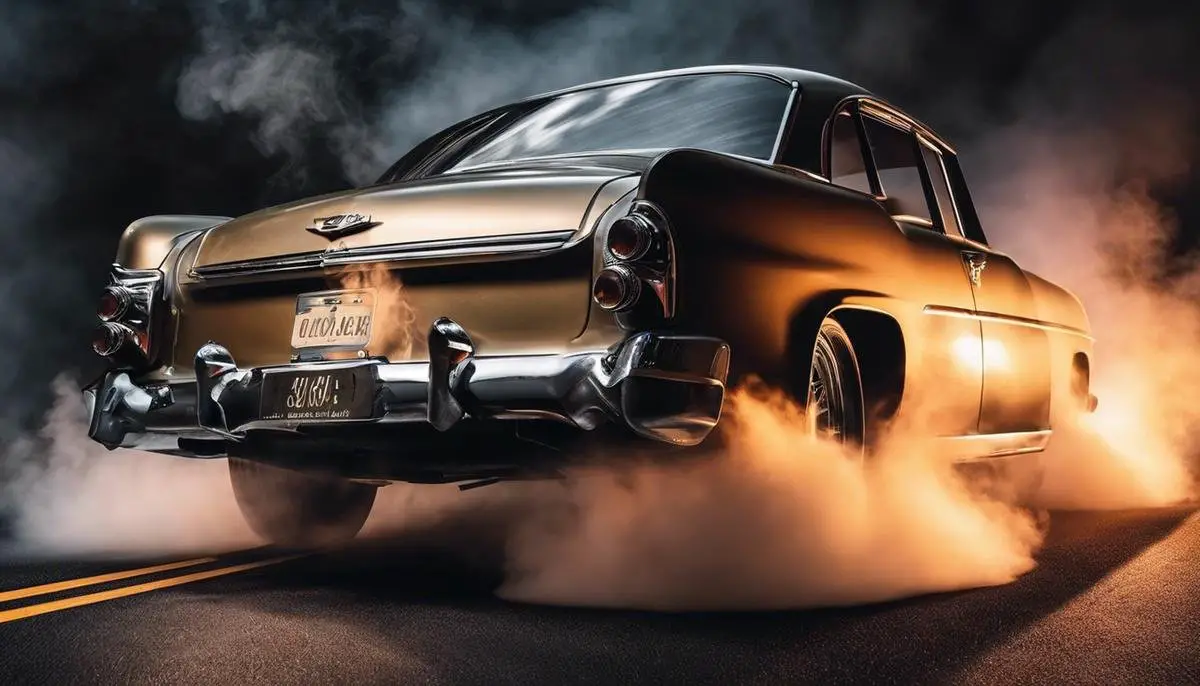
Identifying Signs of Overheating
Despite having understood all the components and their significant roles in keeping the engine cool, it is equally important to identify the telltale signs of a car overheating. Recognizing these signs in their initial stages will swiftly allow you to solve the problem and potentially avoid any major repairs in your vehicle.
Firstly, and possibly the most noticeable, is a temperature gauge rapidly shooting into the red zone. The dashboard temperature indicator is not simply decor, but a real-time indicator of your engine temperature. If the needle frequently ventures toward the red or hot side, it's a clear indication your car may be overheating.
Secondly, beware of an unusual odor. If you ever notice an unfamiliar smell, reminiscent of hot syrup or burning rubber wafting under your car's hood, it's likely that coolant and oil are overheating. These smells need immediate attention to prevent severe engine damage.
Steam from under the hood should also raise alarms. If ever you see white smoke or steam billowing from beneath your hood, pull over immediately. This could signal that your engine has overheated to the point where coolant is evaporating on contact, and continuing to drive could result in catastrophic engine failure.
Don't ignore unexpected engine behaviors either. Low performance, stuttering acceleration, or unusual noises from the engine are all hints something may be awry with your vehicle's cooling system. Your car should operate smoothly and quietly under normal conditions. Any changes to its regular behavior should be taken as an indication to check under the hood.
Lastly, an illuminated check engine or coolant temperature warning light is a direct and obvious sign of overheating. Modern vehicles are designed to monitor engine performance. If any abnormalities like high engine temperature are detected, these warning lights will illuminate.
Like any hobby, becoming proficient in vehicle maintenance and resolving issues takes time and practical experience. Knowing these signs of overheating expands your knowledge and empowers you to better care for your car. As the old saying goes, "an ounce of prevention is worth a pound of cure" and that's as true for car maintenance as anything. Remember, the spirit of this hobby is found in learning, understanding, and hands-on problem-solving.

Preventing and Fixing an Overheating Car
Diving right back into the fray, let's focus on another major component that plays a part in car overheating, especially while idling, the electric cooling fan. This little hero works in tandem with your vehicle's radiator, providing the all-important circulation of air to cool down the circulating coolant. When your car is idling, or caught in stop-and-go traffic, the cooling fan might need to step up its game to prevent overheating. If it malfunctions, or simply doesn't have the power to keep up in high-temperature situations, your car could heat up dangerously while at rest.
An interesting diagnostic tip is to observe the fan while the car is parked and idling. If the fan doesn't kick in after the car has been idling for a while and the temperature gauge shows a rise, it's safe to say there might be an issue.
Performing a fan clutch inspection can also help ensure everything is in order. The fan clutch engages the fan at a certain temperature and disengages it when it's not needed. If it doesn’t engage, the fan won’t be able to cool the engine effectively.
Moving beyond the cooling system components, a faulty engine tuner could also cause your car to heat up. An improperly tuned engine can struggle, overworking itself and generating an excess of heat. While idling, the heat can build up, leading to overheating.
Issues with your vehicle's exhaust system can also contribute to overheating. An obstructed exhaust cannot expel heat as effectively, causing heat build-up while driving. If the obstruction is severe, idling can cause overheating as well.
Now, let's delve into some preventive and repair strategies you can apply to keep your car running cool.
- A regular cooling system flush is a top-notch preventative measure. It helps cleanse the system, removing any clogs or debris that could cause obstructions or inefficiency. It also provides you the opportunity to replace old coolant with fresh one, ensuring maximum heat transfer.
- Regular engine tune-ups can help your engine run more smoothly, reducing the risk of overheating. An added bonus is that this can also improve your car's performance and fuel economy.
- Identify potential issues with the cooling fan or fan clutch. Replacement of these will often solve overheating issues, especially when idling.
- Always address any issues with your vehicle's exhaust system promptly. An obstruction, while not directly related to the cooling system, can still affect your engine's temperature.
Maintaining a good habit of observing your car’s behavior while idling should become second nature. Odd noises, changes in performance, or any of the signs we've discussed today could indicate that your car is at risk of overheating. Remember, there's not always a warning light for everything.
By diligently maintaining, inspecting, and learning about your car's components, the beast of overheating while idling can be tamed. Keep those tools bustling, and breathe in that unique scent of oil, rust, and hard work that typifies the life of a true motor enthusiast.
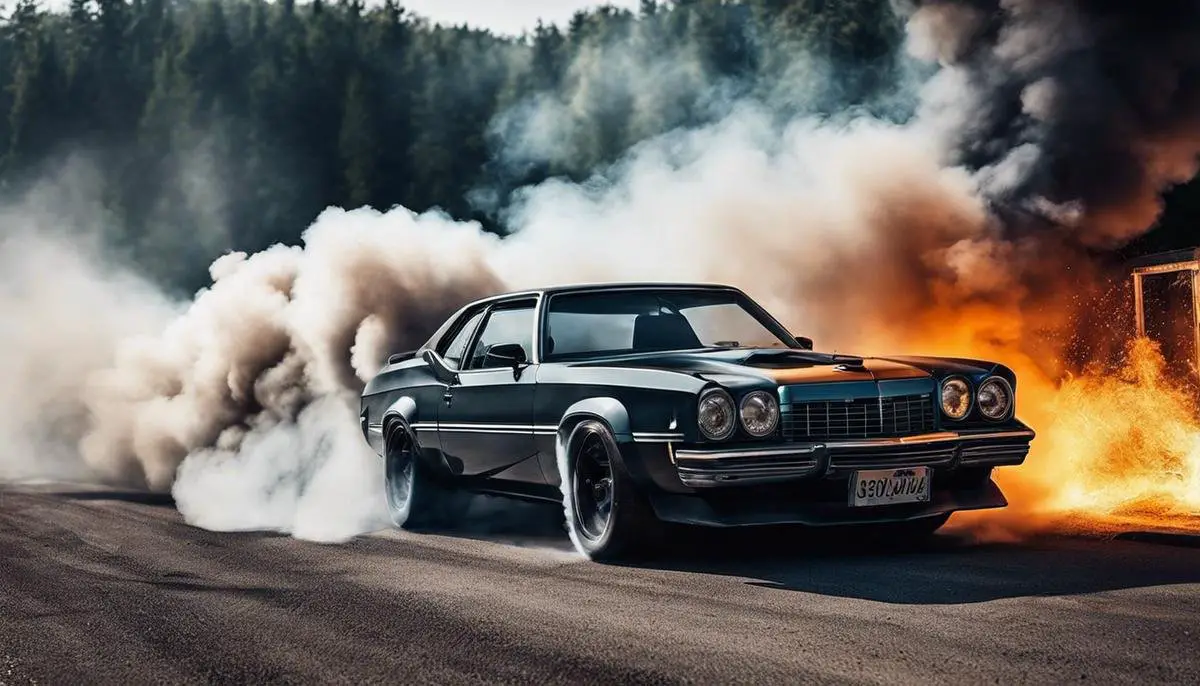
When managed correctly, issues like car overheating can be easily prevented and resolved. Regular maintenance and inspections, using appropriate coolant, prompt repairs of leaks, and effective heat management are crucial in safeguarding your car against any overheating issues. Safety, performance, and longevity of the vehicle are all greatly enhanced through such preventative measures. Understanding how to respond when the car starts to show signs of overheating, especially during idling, allows one a smoother, safer, and hassle-free driving experience. Because knowledge of proper car care and management is not just an added advantage, it's a necessity.
Image Source: https://writio.com/

